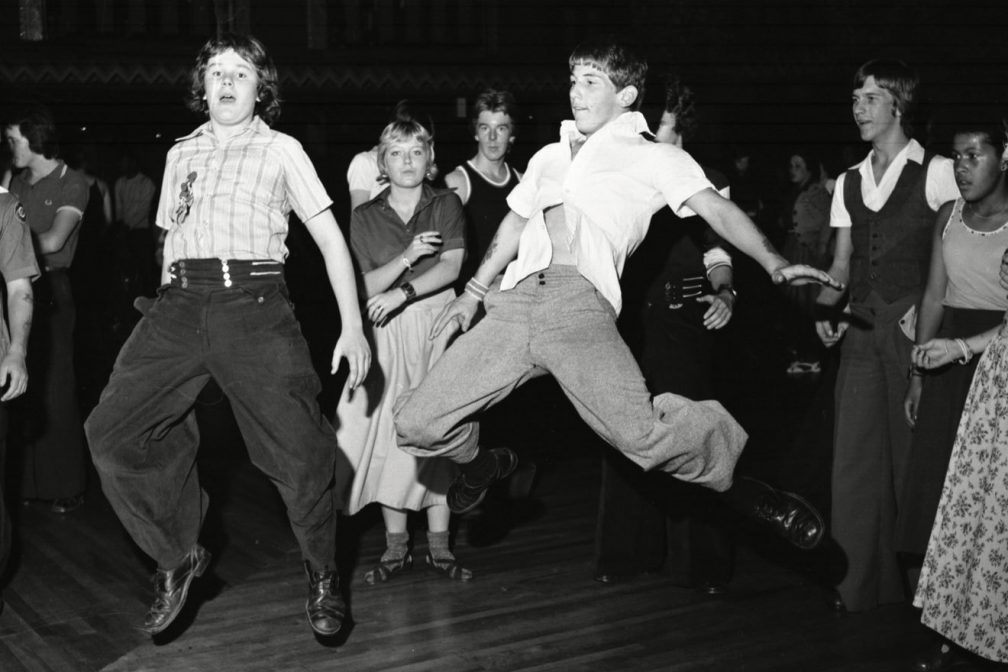 Culture
Culture
The clubs of Northern Soul
This is the story of the clubs that made the scene
Northern Soul was the birth of the crate-digger, the start of modern clubbing as well know it and a fully-formed drug subculture some 20 years before ecstasy arrived in the UK. Some time in the mid-60s there was sharp divergence between soul lovers in the North and South. The original London mods dissolved into the new dream of LSD and Jefferson Airplane, swapping Italian suits for kaftans, while in the North they kept the faith driven by a hunger for unearthing new and old soul sounds from labels in the African-American underground like Ric-Tic and Golden World (Detroit), Mirwood (Los Angeles) and Shout and Okeh (New York and Chicago).
The term ‘Northern Soul’ was coined by soul writer Dave Godin in a piece he wrote for Blues & Soul Magazine in 1970 as a way of describing the divergence in styles between the north and south. Northerners would come into Godin’s London store, Soul City, and ask for completely different tunes to his regular southern customers. “What I noticed was that people who came from the north were not buying what was subsequently called funk,” said Godin. The sound was uptempo and mainly based on the stomping beat personified by the Four Tops’ ‘Can’t Help Myself’ and other Motown productions. This sound was largely fuelled by increasing amphetamine use at all-nighters, where Northern Soul was forged and thrived.
The Twisted Wheel, Manchester, 1963–1971
The birthplace of Northern Soul, Manchester’s Twisted Wheel was the premier spot to dance all night to black soul music (along with others, like Peter Stringfellow’s Mojo club in Sheffield), it soon developed a reputation not only for its musical influence, but also in establishing Northern Soul’s drug culture; with events often lasting until 10am on Sunday mornings, amphetamines were commonplace among clubbers wanting to last the distance.
The altered state of the club’s clientele also had a significant impact on dictating its sound, requiring a much faster beat. As black America moved into the 1970s led by James Brown and his funk disciples, the bpm dropped to a leisurely groove and so Northern DJs began searching for songs that had the required tempo – and feel – to feed their speedy dancefloors. With everyone desperate to play exclusive, previously unheard gems, trips to the US digging for obscurities became commonplace, with leading DJs covering up the labels or purposely inventing new names to conceal the song’s identity, giving them exclusivity and offering something unavailable at rival nights.
“It was a completely new form of music,” says DJ Ian Levine. “It combined a rock beat to dance to, jazz chords which elevated your mood to make you
feel happy or wistful, and great sing-along choruses. That was the sound of Northern Soul.” By 1971 the Twisted Wheel’s reputation as a drug den became its undoing and it was closed down by the police for allegedly turning a blind eye to the drug dealing and drug-taking that was rife on the premises. “The drug squad saw it as a haven for people taking drugs,” recalls DJ Richard Searling. “Though it was true that it did go on, it wasn’t the reason people went there.”
The Golden Torch, Tunstall,Stoke-on-Trent, 1972–1973
Having been forced out of Manchester due to the city’s laws on after-hours partying, Northern Soul’s new home became the unlikely location of Tunstall, Stoke-on-Trent, home of Chris Burton’s Golden Torch.
The Torch had been a successful r’n’b club since 1965, but stepped up following the demise of the Wheel and began hosting soul all-nighters in 1972. Kev Roberts, later a resident at the Wigan Casino, had an epiphany at the Torch: “I thought it was terrific, because that was the first place that had an abundance of American 45s. I’d never come across so many unknown records in my life. And every one of them was a stonker. They were all fast, furious great vocals. Girl groups. Odd imprints. Obscurities on the Okeh label. I’d only ever seen that label with Major Lance, and suddenly I was hearing things like Sandy Sheldon’s ‘You’re Gonna Make Me Love You’. It was great.”
Faced with complicated, fractured train or bus journeys or hitchhiking to get there, clubbers stayed faithful to The Torch until their logistical nightmares came to an end in 1973 with the emergence of the Wigan Casino, a venue which would change the face of the scene and become its de facto home.


